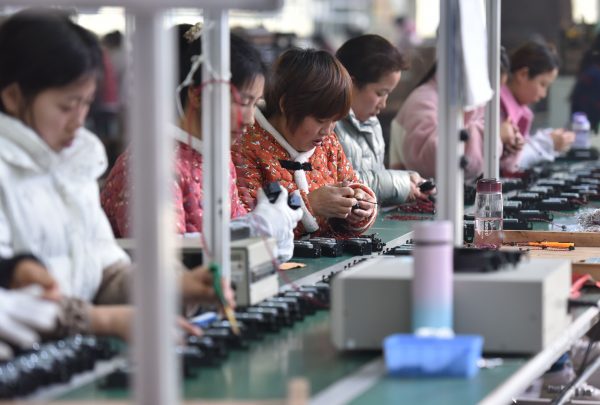The law’s consultation is under the spotlight — especially as ongoing debates on the cultural and structural constraints on women’s emancipation have intensified after several recent cases of severe gender-based violence were shared widely on digital platforms. In January 2022, a video went viral of a chained woman allegedly imprisoned by her husband in Xuzhou village for years. The exposure of her circumstances sparked widespread public discussion about human trafficking and women’s rights, as well as the apparent weakness of the existing law in tackling such cases.
85,221 people participated in the first round of consultations in January 2022, with a total number of 423,719 amendments proposed — the largest number of proposals made during a consultation period. The high level of public engagement is worth noting given the increased repression of Chinese civil society under the current regime.
Chinese citizens continue to influence public affairs, having developed distinctive strategies consistent with the existing system of government in what University of Manitoba Associate Professor Lawrence Deane describes as a ‘uniquely Chinese form of civil society’. Various rights advocates increasingly use litigation to affect social outcomes. One particularly active voice is the Beijing QianQian Law Firm, whose proposed amendments to the Law on the Protection of Women’s Rights were widely circulated.
QianQian addresses the male-centric language embedded in China’s law by proposing gender-neutral terminology to emphasise women’s independent subjectivity and equal civic rights. For example, they recommended clause 2 of the General Provision — that ‘women enjoy equal rights with men in all aspects of political, economic, cultural, social and family life’ —be amended to ‘men and women enjoy equal rights’. They have proposed changing the wording of all clauses dealing with women-specific rights on the basis that the law’s original wording implies that men’s rights are the benchmark for women’s rights.
Yet to the disappointment of many, the first officially amended draft put forward by the legislature committee contained few of QianQian’s amendments.
One alarming change to the amended draft was the erasure of existing content from clause 45, originally stating that ‘Employers should not ask about fertility wishes when recruiting women’. Despite it being illegal, this recruitment practice is widespread because women’s potential to become mothers has been widely perceived as an extra cost to employers since China’s ‘reform and opening-up’ period. This partially explains the continued decline in female labour-market participation— from 73 per cent of the female population in 1990 to 62 per cent in 2021.
In the context of China’s recently introduced Three-Child Policy and an economy dampened by the COVID-19 pandemic, the change to clause 45 will undoubtedly pose a further challenge to women’s employment prospects. The official draft also deleted a phrase from clause 17 — that ‘relevant departments and units shall attach importance to All Women’s Federations and their members’ recommendations when nominating female officials’. This could worsen the already-severe underrepresentation of women in leadership roles in China.
In their second amendment submission, QianQian also highlighted the police force’s inadequate service provision and training as a major hurdle in law enforcement. Police officers receive little relevant training and few women police officers are engaged in domestic abuse cases.
QianQian suggested that ‘names of personnel and offices shall be published when necessary’ be added to clause 88 — a section that originally stipulates that ‘penalties apply to government personnel and their supervisors’ in cases of gendered violence in which administrative justice fails. QianQian also proposed that ‘no gender disparity in college admission standards’ be included in clause 22 — a significant step towards breaking down male dominance in the police force and the military in the long term through education.
To address the lack of measures taken by local officials — one of the long-standing barriers to ending human trafficking and other forms of gender-based violence — QianQian recommended decentralising the power of litigation. Only the public prosecutor is allowed to litigate cases related to gender-based violence, so QianQian proposed that ‘all qualified social organisations should be allowed to act as public litigants’ in clause 78. This would empower civil society and improve law enforcement.
The second amendment proposal deadline passed on 19 May 2022. With the result pending, efforts to challenge the gender-blind, increasingly centralised state apparatus requires long-term perseverance from China’s surviving civil society actors who must keep faith in the Chinese proverb — the ‘dripping water can wear away stones’. QianQian’s actions represent the thriving, vibrant civil society underneath the state’s tightened control, proving that the struggle for better protection of women’s rights is an ongoing one, comprised of many prominent voices that are hard to silence.
Kailing Xie is Lecturer in International Development at the University of Birmingham.
Ying Huang is a graduate of the Centre for Women’s Studies, University of York.

